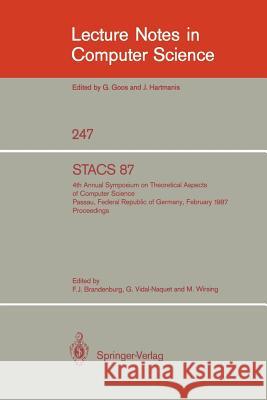Stacs 87: 4th Annual Symposium on Theoretical Aspects of Computer Science, Passau, Frg, February 19-21, 1987 » książka
topmenu
Stacs 87: 4th Annual Symposium on Theoretical Aspects of Computer Science, Passau, Frg, February 19-21, 1987
ISBN-13: 9783540172192 / Angielski / Miękka / 1987 / 483 str.
Stacs 87: 4th Annual Symposium on Theoretical Aspects of Computer Science, Passau, Frg, February 19-21, 1987
ISBN-13: 9783540172192 / Angielski / Miękka / 1987 / 483 str.
cena 189,17
(netto: 180,16 VAT: 5%)
Najniższa cena z 30 dni: 181,18
(netto: 180,16 VAT: 5%)
Najniższa cena z 30 dni: 181,18
Termin realizacji zamówienia:
ok. 16-18 dni roboczych.
ok. 16-18 dni roboczych.
Darmowa dostawa!
Kategorie:
Kategorie BISAC:
Wydawca:
Springer
Język:
Angielski
ISBN-13:
9783540172192
Rok wydania:
1987
Wydanie:
1987
Numer serii:
000013115
Ilość stron:
483
Waga:
0.69 kg
Wymiary:
23.39 x 15.6 x 2.57
Oprawa:
Miękka
Wolumenów:
01











